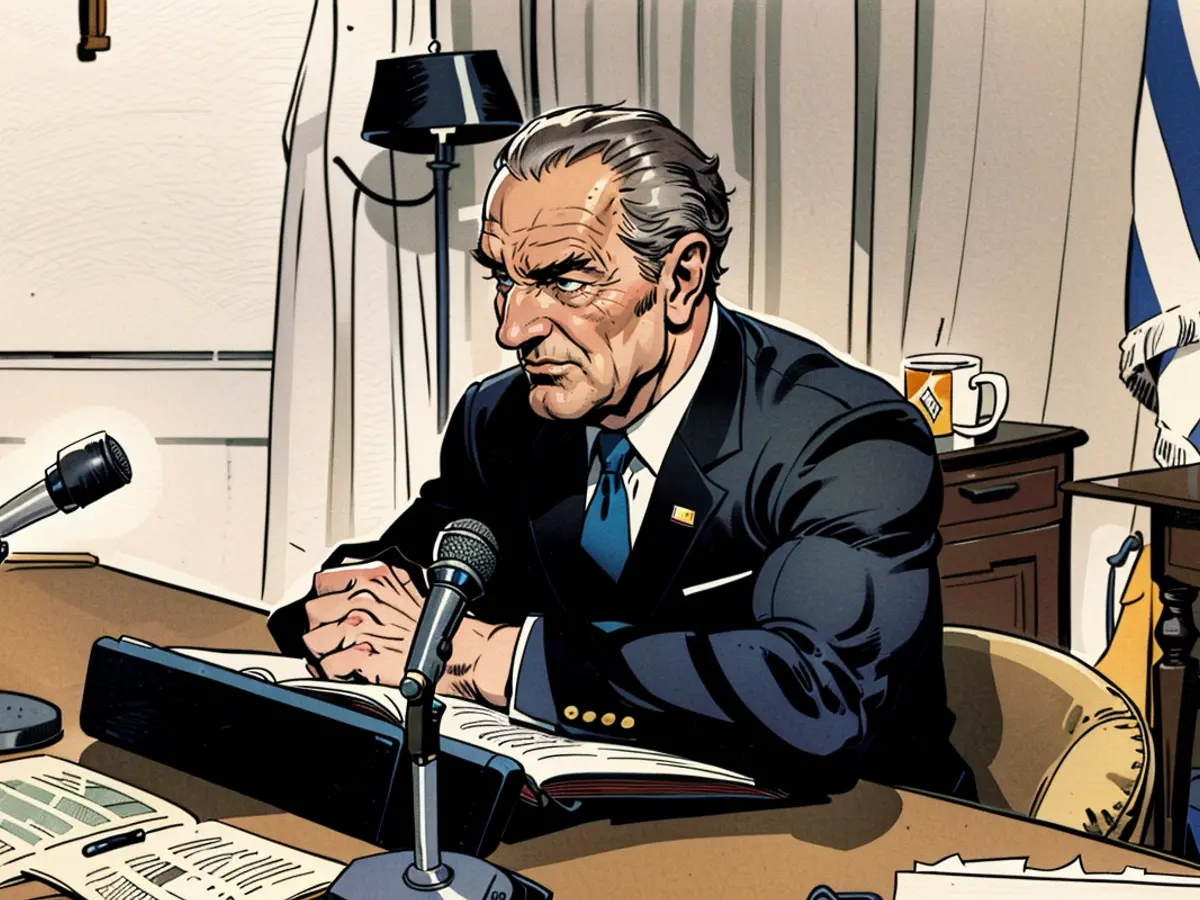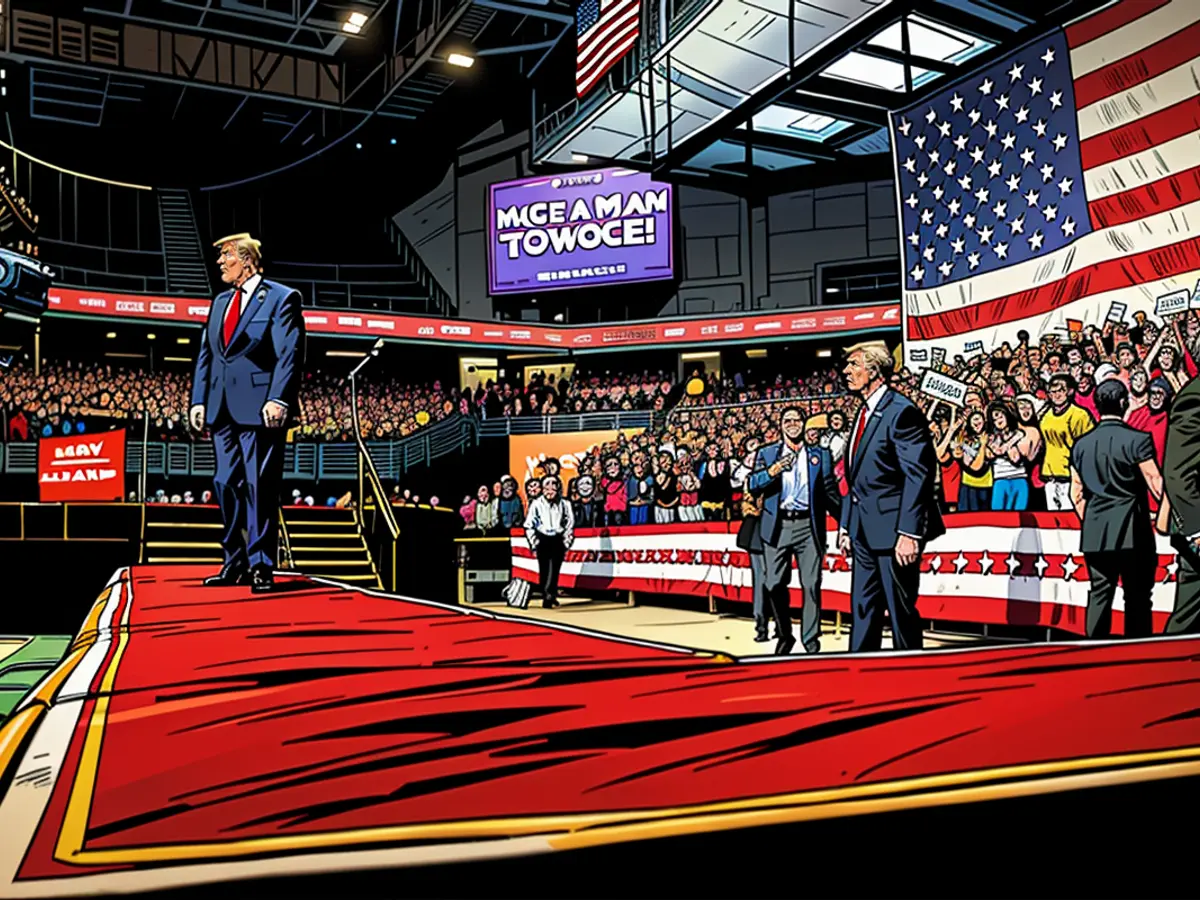Here’s what happened the last time a president chose not to run for a second term
He remains publicly defiant and insists he will remain in the race. But he would not be the first president to step aside rather than seek reelection if he ultimately makes that decision.
Most recently, in 1968, Lyndon B. Johnson shocked the country when he made the surprise announcement that he would not run at the end of an Oval Office speech on his plan to limit US military operations in Vietnam. Here’s part of that address:
It is a remarkable speech to watch today.
Nearly 60 years oldwhen he made that speech, Johnson looked much older. He would die of a sudden heart attack in 1973 at 64, before eligibility for retirement programs like Medicare,which he signed into law, and Social Security, which he expanded.
By the time he bowed out of the race, Johnson, unlike Biden, was facing multiple challenges for the Democratic nomination in the spring of 1968. Racial strife in the US, paired with a country fractured over the war in Vietnam, hurt Johnson’s popularity. In early 1968, the Tet offensive in Vietnam showed Communist forces there to be must stronger than the US military had claimed, and American casualties in the war mounted.
Earlier that March, Johnson only narrowly won the New Hampshire primary against the anti-war candidate Sen.Eugene McCarthy. Sen. Robert F. Kennedy, the brother of the man whose assassination elevated Johnson to the White House, entered the presidential race on March 16.
Health was a concern for LBJ
Vietnam split the party in 1968, but the growing rift among Democrats over the war was not the only reason Johnson pulled out of the race, according to Mark Updegrove, a presidential historian and CEO of the LBJ Foundation.
I talked to Updegrove in 2022 about why presidents might not run for reelection, and he told me at the time that Biden, like LBJ, should consider his health before seeking another four-year White House term.
“There’s the misconception that LBJ opted not to run again due solely to the growing controversy and divisions over the war in Vietnam. That may have been part of it, but his principal concern was his health,” Updegrove said.
“He had had a nearly fatal heart attack in 1955, and his family had a history of fatal heart disease. He didn’t want to put the country through the kind of crisis we had gone through with the sudden death of FDR in 1945, and Woodrow Wilson’s stroke in 1919, which left him incapacitated,” Updegrove added.
A year of incredible uncertainty
1968 is an infamous year in US history, and Johnson’s March 31 announcement kicked off a period of violence and uncertainty.
Less than a week after Johnson announced his decision not to run for reelection, Martin Luther King Jr. was shot by a sniper on April 4, an event that sparked a wave of violence and riots that devastated many American cities, including Washington, DC, Baltimore and Chicago. Johnson deployed 58,000 National Guardsmen and Army troops to US cities.
In June of that year, Kennedy was assassinated in California, creating even more turmoil. His son is now running for president as an independent.
If Biden decides to step aside this year, Democrats should study what happened in 1968, when they ultimately sidestepped McCarthy, who channeled the anti-war sentiment. Instead, they elevated Johnson’s vice president, Hubert Humphrey, as their nominee at the Democratic National Convention – which, like it will be this summer, was held in Chicago that year too. As Humphrey accepted the nomination in the convention hall, riots raged in the streets outside.
In November, Humphrey ran close to Richard Nixon, a Republican and the ultimate winner, but the independent candidate George Wallace, a former Democrat, won multiple Southern states with a populist and segregationist appeal. Wallace also likely siphoned votes away from Humphrey in key states.
Johnson remains one of the country’s most transformative presidents
Johnson capitalized on a period of unity after the death of John F. Kennedy to pass landmark civil rights legislation. He won his own landslide reelection in 1964 and used that momentum to enact a series of laws meant to build the US into a “great society,” including Medicare and the Voting Rights Act, and declared a war on poverty.
Those civil rights achievements were not universally celebrated in the US, and they hastened a realignment of the American political parties in which his Democrats went from the dominant to the minority party in the American South.
Despite his health concerns, Johnson also considered the potential impact on the country if he were to suffer a health crisis during his presidency, as FDR and Woodrow Wilson did before him.
If Biden chooses to step aside, understanding the events of 1968, particularly the impact of anti-war candidates and the shift of votes to third-party candidates, could be valuable lessons for the Democrats.






